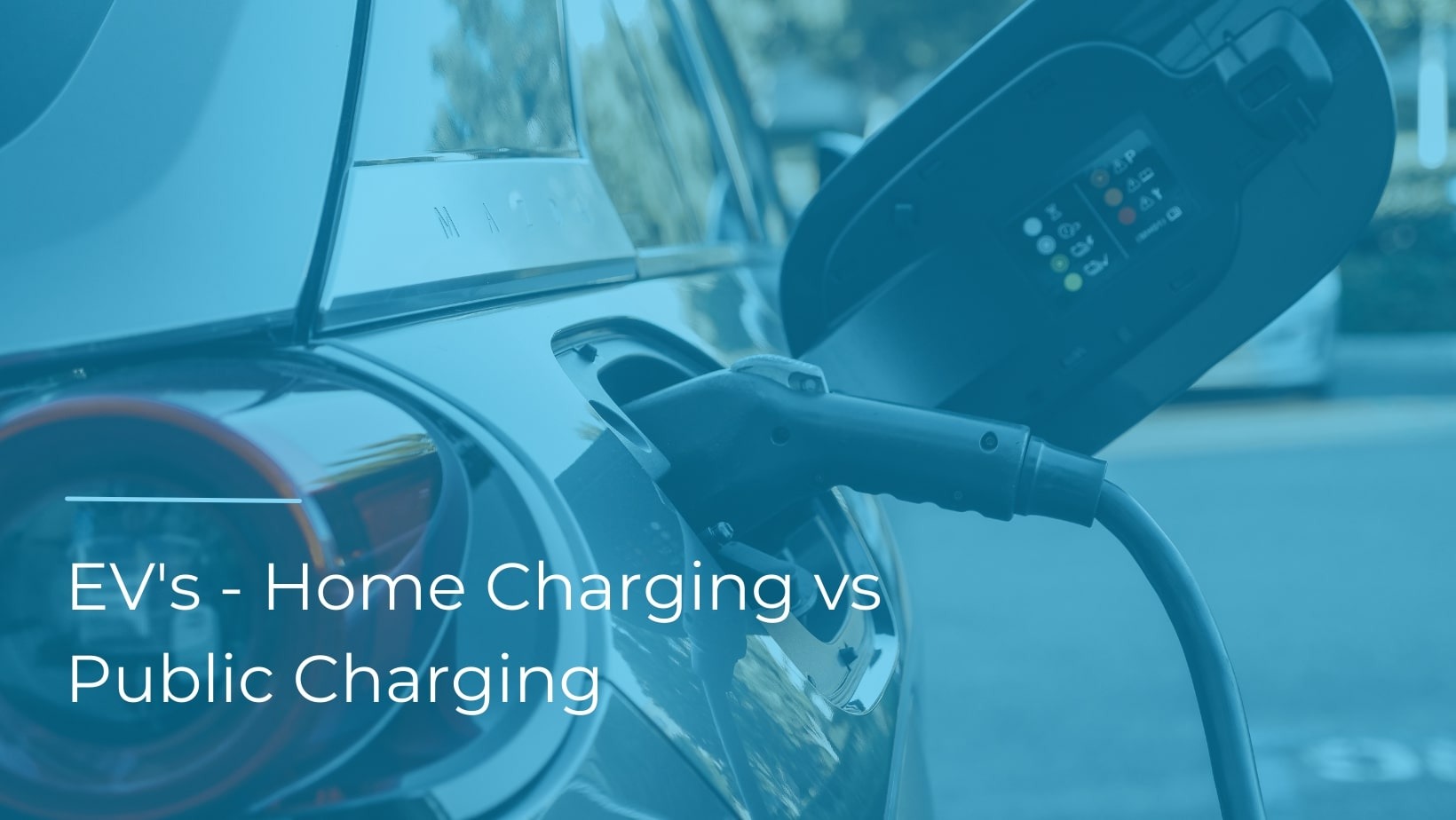EVs - Home Charging vs Public Chargers
Electric vehicles (EVs) are becoming increasingly popular as people look for greener transportation options. However, one of the main concerns for new EV owners is how to charge their vehicles. In this article, we will explore the different options for charging an EV, the difference between home and public charging, and the various levels of electric vehicle charging.
How does electric vehicle charging work?
Electric vehicles use batteries to power an electric motor, which drives the car. The batteries need to be charged regularly to keep the car running. Charging an EV is similar to charging a mobile phone or laptop; the vehicle is connected to an electric power source, and the batteries are charged with electricity.
However, charging an EV is more complicated than charging a mobile phone, as the batteries are much larger and require more power. Therefore, different charging options and methods are available to suit different EV models and driving requirements.
Charging options for electric vehicles
There are three different levels of electric vehicle charging: Level 1, Level 2, and DC fast charging. The charging speed and power output of each level vary, and different EV models are compatible with different levels of charging.
Rapid Charging (DC)
Rapid charging is the fastest type of charging and can provide up to 80% of a battery’s charge in just 30 minutes. These chargers use direct current (DC) to charge the battery, and are typically found in motorway service stations and other high-traffic areas.
Fast Charging (AC)
Fast charging provides a more moderate charging rate than rapid charging, and can provide up to 80% of a battery’s charge in 1-2 hours. These chargers use alternating current (AC) to charge the battery, and are typically found in public parking areas and other convenient locations.
Slow Charging (AC)
Slow charging provides the slowest charging rate, but is also the most widely available. These chargers use alternating current (AC) to charge the battery, and can take up to 8 hours to fully charge a battery. These chargers are typically found in residential areas, workplaces, and other locations where EVs may be parked for an extended period.
Home charging vs public charging
Electric vehicle owners can choose to charge their vehicles at home or in public charging stations. Home charging is more convenient and cheaper than public charging, but it requires a dedicated charging station or a standard wall socket.
How to charge an electric vehicle at home
Home charging is the most convenient and cost-effective way to charge an electric vehicle. It requires a dedicated charging station or a standard wall socket. Let's look at the different options for charging an EV at home.
Charging with a standard wall socket
The simplest way to charge an EV at home is to use a standard wall socket. However, this is the slowest and least efficient option, as it can take up to 24 hours to fully charge the vehicle's battery.
Installing a home charging station
Installing a dedicated home charging station is a faster and more efficient option for charging an EV at home. It requires a 240-volt power supply and can charge an EV battery in a few hours, depending on the battery's size and capacity.
Choosing the right home charging station
When choosing a home charging station, it's essential to consider the EV's charging requirements and the homeowner's electrical infrastructure. There are several types of home charging stations available, ranging from basic models to advanced smart charging stations.
It's also important to consider the cost and installation requirements of the charging station. Some EV manufacturers offer home charging stations that are specifically designed for their vehicles, while others offer third-party charging stations.
How to charge an electric vehicle in public
Public charging stations are an alternative option for charging an EV when travelling or when home charging is not possible. Let's look at the different options for charging an EV in public.
Charging at charging stations
Public charging stations are located in public places such as car parks, shopping centres, and service stations. They offer Level 2 and DC fast charging options and require a charging cable and a payment method.
Finding public charging stations
EV owners can find public charging stations using mobile apps, GPS navigation systems, or online maps. Some charging station networks require a membership or subscription, while others offer pay-as-you-go options.
Paying for public charging
Public charging stations charge a fee for the electricity used to charge an EV. The fees can be based on the amount of energy used, the charging time, or a flat rate. Some charging stations offer free charging for EV owners, but this is becoming less common as EV adoption increases.
Charging an electric vehicle is different from refuelling a conventional car, but it is not complicated. EV owners can choose to charge their vehicles at home or in public charging stations, depending on their driving requirements and charging preferences.
There are different options for charging an EV, including Level 1, Level 2, and DC fast charging, which offer different charging speeds and power outputs. Home charging is the most convenient and cost-effective option, while public charging provides access to charging stations when travelling or when home charging is not possible.
As EV adoption increases, the availability and accessibility of charging infrastructure are also improving. Therefore, charging an electric vehicle is becoming easier and more convenient for EV owners.






